Mabel Kabani, opinion editor
Every year towards the end of school, I head over to Barnes and Nobles, which is undoubtedly the happiest place on earth, to buy books. Some I buy for leisure and the others I buy for summer reading, mandatory books to read for school. I always start out excited to read the so-called “classics” that have been raved about by college professors, literary scholars, critics and students alike. The glossy cover, smell of unruffled pages, and prospect of falling in love with yet another book make me giddy and seems to give the endless days of summer a purpose. I go home and settle on my comfiest beanbag with a dainty pen in hand, ready to annotate my books for school. And that’s when my misery begins.
I’m one of those odd kids you find these days that seem like they should be born in another century. I like writing long letters, doing things by candlelight, and craziest of all, I love to read. Summer reading excites me and the more books I have to read, the better; I just pretend to groan with the rest of the kids in my class when I receive my list for summer reading books. However, what turns my smile upside down is one thing: annotations.
Annotations, I believe, should be banned from English classes because frankly, everyone hates them, especially me. Though I am an avid and passionate reader of books, annotating turns me away from wanting to read for school. It distracts me from enjoying the book. How do teachers expect us to become engrossed in books when we have to stop reading in the middle of an enticing scene to jot down literary terms? How are we supposed to relate to the characters emotions and the author’s thought process when we need to highlight vocabulary every three sentences? Well, it’s not possible to enjoy what is supposed to be an enlightening and enriching experience for the soul in the midst of all the pressure to underline key concepts and infer motives of major characters for a grade. I understand that annotating has a purpose, to assist students in engaging with the text, but is being completely disinterested in a book an appropriate price to pay when the actual intent of annotating is to introduce students to the love of the written word on a deeper level? Most students already think of reading as a punishing activity, but annotating makes the few of us who do adore books look at the objects with disgust. And frankly, teachers shouldn’t repel the small and elite group of students who enjoy the company of books.
Besides just contaminating students’ reading experience, annotating books is a time consuming and fruitless venture. Though teachers look at annotating as an opportunity for students to correctly and efficiently interact with the text, students don’t always view the opportunity as such. Instead of properly finding the time to sit in a quiet and comfortable room, jot down notes and actually reap benefits from annotating, students find it a waste of time and randomly underline and highlight sentences and write useless commentary in the margins, just to get the grade. Instead of perhaps forcing us to annotate books during the school year and over the summer, english teachers should consider teaching us how to annotate correctly if this is an act we have to perform anyway. How do we actually take notes on character changes and plot developments and hints of foreshadowing in a way that doesn’t distract us from our main purpose: to read and enjoy the book?
I understand that annotating serves another small and nearly negligible purpose, to confirm whether the students actually read the books they were supposed to. But, there are other ways to test that same concept that don’t force us to taint our leather bound parcels of bliss and felicity. Instead of forcing annotations upon us, why not make objective tests slightly more detailed and grade essays slightly harder? Why force students to contaminate their reading experiences with unnecessary pauses and vandalize their precious books with messy ink stains and bright highlights? Or, if annotations are an unfortunate and necessary part of life, teach us how to annotate properly! If they’re actually as beneficial as teachers claim, then don’t just send us out, informing us to mark our books up as much as possible. That does not help us collaborate with the text and the author’s purpose. Teach us how to annotate the right way. A way in which won’t take away the joy of reading for students and a way that is beneficial in understanding key aspects of the book. Otherwise, more and more students will be forced to drop their love of reading, which in turn would make annotating a crime and teachers, the criminal.
Every year towards the end of school, I head over to Barnes and Nobles, which is undoubtedly the happiest place on earth, to buy books. Some I buy for leisure and the others I buy for summer reading, mandatory books to read for school. I always start out excited to read the so-called “classics” that have been raved about by college professors, literary scholars, critics and students alike. The glossy cover, smell of unruffled pages, and prospect of falling in love with yet another book make me giddy and seems to give the endless days of summer a purpose. I go home and settle on my comfiest beanbag with a dainty pen in hand, ready to annotate my books for school. And that’s when my misery begins.
I’m one of those odd kids you find these days that seem like they should be born in another century. I like writing long letters, doing things by candlelight, and craziest of all, I love to read. Summer reading excites me and the more books I have to read, the better; I just pretend to groan with the rest of the kids in my class when I receive my list for summer reading books. However, what turns my smile upside down is one thing: annotations.
Annotations, I believe, should be banned from English classes because frankly, everyone hates them, especially me. Though I am an avid and passionate reader of books, annotating turns me away from wanting to read for school. It distracts me from enjoying the book. How do teachers expect us to become engrossed in books when we have to stop reading in the middle of an enticing scene to jot down literary terms? How are we supposed to relate to the characters emotions and the author’s thought process when we need to highlight vocabulary every three sentences? Well, it’s not possible to enjoy what is supposed to be an enlightening and enriching experience for the soul in the midst of all the pressure to underline key concepts and infer motives of major characters for a grade. I understand that annotating has a purpose, to assist students in engaging with the text, but is being completely disinterested in a book an appropriate price to pay when the actual intent of annotating is to introduce students to the love of the written word on a deeper level? Most students already think of reading as a punishing activity, but annotating makes the few of us who do adore books look at the objects with disgust. And frankly, teachers shouldn’t repel the small and elite group of students who enjoy the company of books.
Besides just contaminating students’ reading experience, annotating books is a time consuming and fruitless venture. Though teachers look at annotating as an opportunity for students to correctly and efficiently interact with the text, students don’t always view the opportunity as such. Instead of properly finding the time to sit in a quiet and comfortable room, jot down notes and actually reap benefits from annotating, students find it a waste of time and randomly underline and highlight sentences and write useless commentary in the margins, just to get the grade. Instead of perhaps forcing us to annotate books during the school year and over the summer, english teachers should consider teaching us how to annotate correctly if this is an act we have to perform anyway. How do we actually take notes on character changes and plot developments and hints of foreshadowing in a way that doesn’t distract us from our main purpose: to read and enjoy the book?
I understand that annotating serves another small and nearly negligible purpose, to confirm whether the students actually read the books they were supposed to. But, there are other ways to test that same concept that don’t force us to taint our leather bound parcels of bliss and felicity. Instead of forcing annotations upon us, why not make objective tests slightly more detailed and grade essays slightly harder? Why force students to contaminate their reading experiences with unnecessary pauses and vandalize their precious books with messy ink stains and bright highlights? Or, if annotations are an unfortunate and necessary part of life, teach us how to annotate properly! If they’re actually as beneficial as teachers claim, then don’t just send us out, informing us to mark our books up as much as possible. That does not help us collaborate with the text and the author’s purpose. Teach us how to annotate the right way. A way in which won’t take away the joy of reading for students and a way that is beneficial in understanding key aspects of the book. Otherwise, more and more students will be forced to drop their love of reading, which in turn would make annotating a crime and teachers, the criminal.

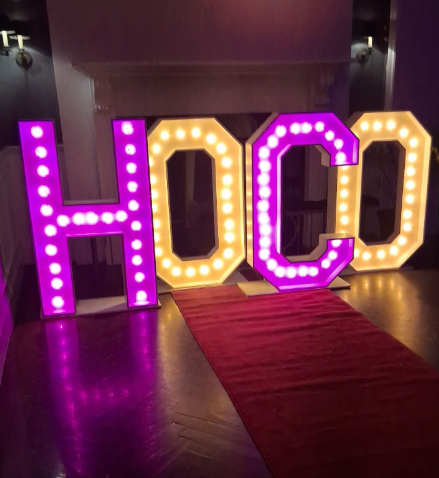





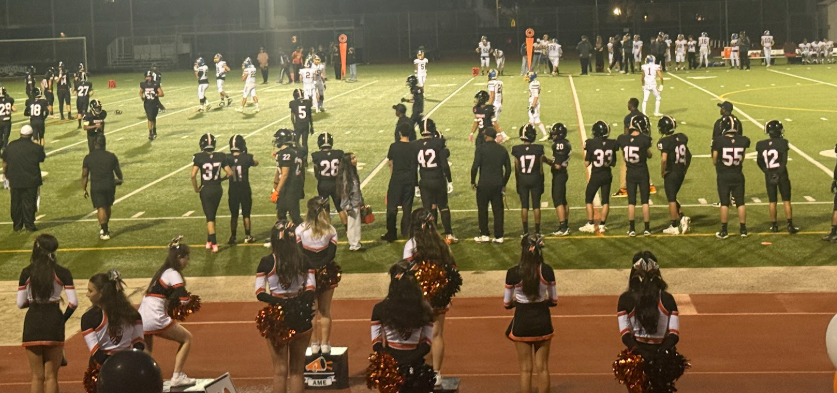
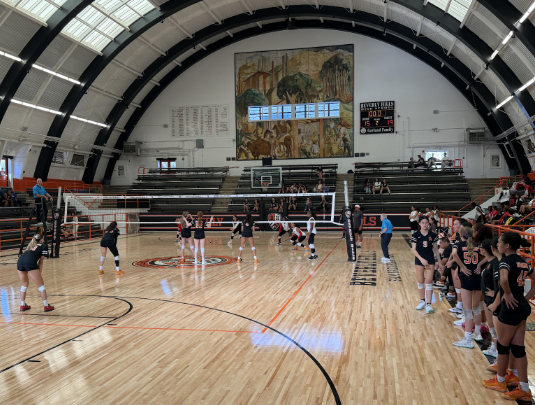











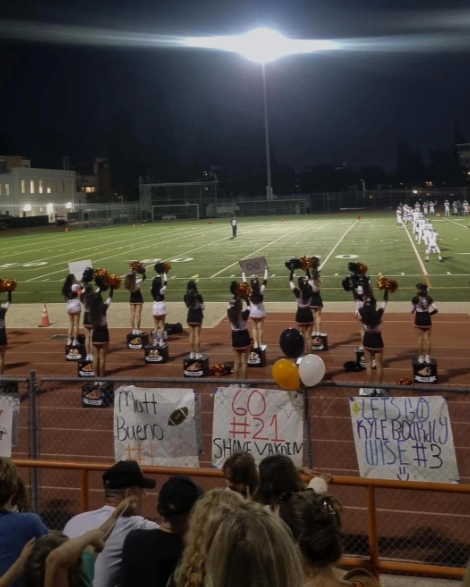


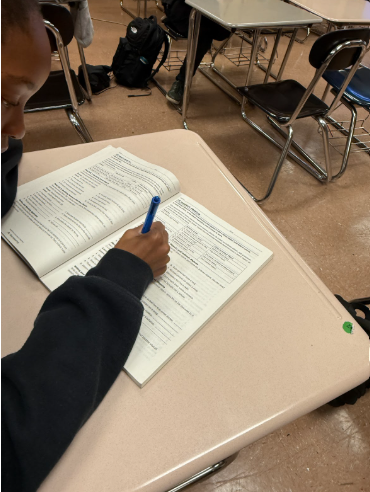







Ryan • Aug 13, 2013 at 2:01 pm
I totally agree! My English teacher in 9th grade didn’t make us annotate, but my summer reading for 10th grade is hell on Earth. Annotating “All Quiet on the Western Front” has ruined my summer.